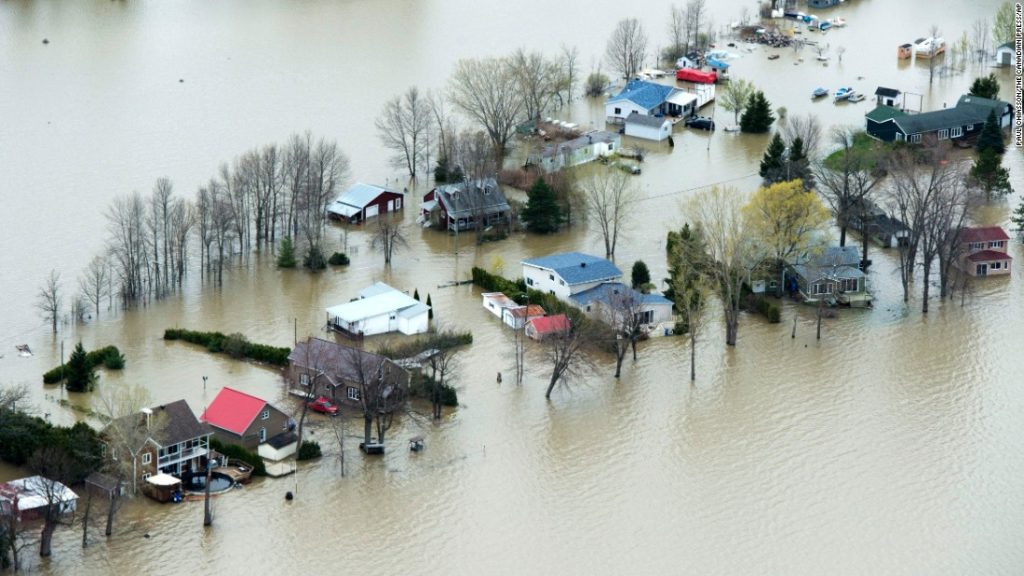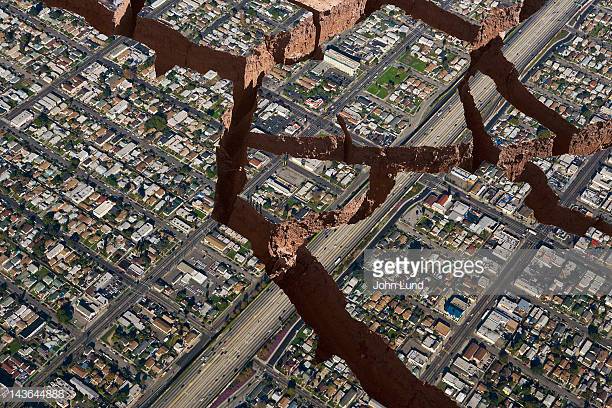Retirement – What Could Go Wrong?

You’ve worked hard for 30 or 40 years, raised a bunch of kids and launched them into adulthood, and now you’re excited to embark on the next phase in your life – stepping back from the daily grind, traveling to far-off lands, having time to enjoy your hobbies, and trying new things. You’ve managed to accumulate a tidy nest egg and, with Social Security, don’t anticipate needing to withdraw more than 4% of it per year. (Bill Bengen would be proud!) Your mortgage is paid off, you have a plan for the future, and you’re still in love with your spouse. Things look good. What could possibly go wrong?
Unfortunately, we all know the answer to this question. If there’s one thing we can count on, it’s that life won’t unfold according to our carefully laid plans. Life-altering trials and disasters have been a theme in stories and song from time immemorial, afflicting the devout in the Books of Job and Jonah; the mighty in Homer’s Odyssey and Shakespeare’s King Lear; and everyman (and woman) in mournful folk tales and songs, with their tales of woe.
While tragedy and trial may inspire great literature and sappy country songs, it is something we generally try to avoid in our own lives. Some of life’s surprises have the potential to be downright catastrophic, bad enough to completely derail our carefully constructed financial plans and therefore our lives in retirement. We can anticipate some risks — such as fire or flood or health problems – although we don’t know whether they will happen to us. These are the “known unknowns.” Then there are the “unknown unknowns” – those disasters we can’t even imagine today. I’ll bet that being buried under a lahar from a reawakened Mt. Rainier, our picture-postcard mountain neighbor, is not on the radar of most people living in my city of Seattle.
According to a report from the Society of Actuaries, one in five retirees has experienced four or more financial ‘shocks’ in retirement, with only 28% (just 13% of widowed retirees) experiencing no such shocks. The most common shocks were things like home repairs and unexpected dental expenses, but the most troublesome and difficult were long-term care, divorce, and long-term financial help to children. Widowhood itself was a shock, resulting in a drop in household income and other problems.
This post seems to be heading in a dark direction, and you may be tempted to click away to something more pleasant, such as a viral cat video. (Although these can be bleak, too – check out Henri, the Cat with Ennui.) Yes, life is full of risks, but what’s the point in dwelling on them? After all, there’s little or nothing we can do to prevent these things from happening, right? But wait — we may be powerless to prevent many bad things from happening – but we can take steps to keep these catastrophes from wrecking our finances and upending our lives. Good retirement planning doesn’t mean just mapping out what happens if all goes well; it also means preparing as best you can for possible setbacks and disasters. If you’ve been responsible enough to plan your retirement, you owe it to yourself to take some fairly simple steps to prepare for and mitigate some of the bigger risks out there.
“Good retirement planning doesn’t mean just mapping out what happens if all goes well”
A word of warning: some suggestions for mitigating risk are going to make me sound like a shill for the insurance industry. Many people take an understandably jaundiced view of insurance companies, whose business model too often seems to consist of collecting money from people for years during good times, then looking for ways to deny claims when asked to pay up. But insurance exists for good reason. It allows individuals to pool risk and protect against low probability events with huge consequences. A healthy person in his or her forties is unlikely to die anytime soon – but if he or she did, the effect of lost earnings on a young family could be financially devastating. Life insurance protects against this possibility, at a modest cost. While the expected value of the insurance (premiums vs. financial impact times likelihood of dying) may be negative, it’s still worth it to most people to protect against the possibility of an untimely death and its devastating consequences on loved ones left behind.
“Insurance exists for good reason. It allows individuals to pool risk and protect against low probability events with huge consequences.”
Let’s consider some specific risks and what you might do to protect yourself against them.
Fire, theft, and property damage.

Most peoples’ biggest tangible asset is their home. A fire or other disaster can cause hundreds of thousands of dollars worth of damage or even result in a total loss. Fortunately, the majority of people have this risk covered via homeowners’ insurance. Make sure you have adequate coverage for valuable items like jewelry, Oriental carpets, and artwork. Review your coverage every few years; you might be overinsured due to valuation “creep,” or find that another insurer offers better coverage for less. In most states, you can check the complaint history of a new insurer you’re considering with your state insurance commissioner.
If you don’t own a home, you might still consider renters’ insurance. The loss of all your stuff might not be as devastating as the loss of a home, but still could be surprisingly expensive to replace.
Natural disasters.
While most homeowners have homeowners’ insurance (and are required to do so as a condition of taking out a mortgage loan), they are often unaware that this does not cover losses from all hazards. Homeowners victimized by recent massive hurricanes such as Harvey, Maria, and Sandy were often dismayed to learn that their homeowners insurance did not cover flooding. (Some homeowners were able to make successful claims by arguing that damage was caused by wind, which was covered.)

To protect yourself against the risk of flooding damage to your property, you must take out special flood insurance. Flood insurance is underwritten by the Federal Emergency Management Agency (FEMA) and offered by private insurers under the National Flood Insurance Program. (In some areas, it’s also possible to get private flood insurance not underwritten by the Federal government.) But most people in areas of high flood risk don’t have it. Only 20% of the residents of coastal New York inundated by Hurricane Sandy had FEMA flood insurance. If you live in a coastal area with flooding risk from hurricanes (such as New York?!), or in a river’s floodplain or hazard zone, you should seriously consider this insurance.
Similarly, standard homeowners’ insurance does not cover damage from earthquakes. While it is possible to get earthquake insurance, most people who own homes in areas with earthquake risk – this includes the entire West Coast! — don’t have it. Why not? Well, earthquake insurance is expensive and often has a very high deductible, such as 15% of a home’s value, before any benefits are paid. Many people may just decide it isn’t worth it.

Equally important, earthquakes are relatively infrequent events and most people haven’t experienced them. People are very bad at evaluating the risk of very infrequent, catastrophic events. Studies have found that we often overestimate the likelihood of fearful, low-probability events, but typically underestimate the consequences of an extreme event, such as a flood. (Botson, Kunreuther, & Michel-Kerjan, 2015). We are quite risk-averse about frightening, unfamiliar risks and less so when it comes to everyday, familiar risks. Thus people will choose to drive over flying, even though the likelihood of injury or death is far greater for driving. We’re more likely to take a laissez-faire attitude toward nature’s disasters, while working ourseves into high dudgeon about a risk we perceive as being human-caused — say, the Exxon-Valdez spill. (Slovic, 1987).
People’s perception of risk is heavily influenced by emotion, and we find it hard to get excited about an event that hasn’t happened within living memory. (Bliss, 2015). When it comes to earthquakes, we find it easiest to stick our heads in the sand, ostrich-like, and ignore the risk. Don’t do this. If you live in an area with earthquake risk, at least consider getting insurance. An earthquake really could happen and cause massive damage to your home — and your financial well-being.
Liability and litigation.
What else could go wrong in a big way and threaten your financial well-being? In our litigious society, it sometimes seems that people sue one another as a first rather than last resort to resolve grievances. An uninsured worker could fall off your roof, your child could be involved in an injury auto accident, or your neighbor could decide that your trees are an existential threat. Your risk of being sued goes up as your net worth increases – which makes older people who have acquired significant savings and assets an attractive target. The primary defenses against liability claims are auto insurance and homeowners’ insurance, which cover the most common sources of liability claims and lawsuits. Typical homeowners and auto policies protect you against liability for damage to third parties up to some limit, usually $300,000 or $500,000. Most people have these kinds of insurance, so they’re good… right?
Not necessarily. Anyone who reads the newspaper knows how common multi-million dollar damage awards are. If your net worth is above the liability limit of your auto and homeowners policies, you might still be at risk. Umbrella insurance, which layers on top of your auto and homeowner policies, can provide the additional protection you need. Fortunately, umbrella insurance is not that expensive – typically $150 to $350 per million of coverage. If your net worth is $1M or more, you should strongly consider getting this coverage.
Health and Medical Problems.
Health issues and medical costs increase as we age. According to the Kaiser Family Foundation, retirees on Medicare spend three times as much on health expenses as working households. Fidelity estimates that a typical 65-year-old couple can expect to spend about $285,000 (in today’s dollars) on health expenses in the future – not including long-term care! For some – those with chronic health conditions or who need long-term care — the costs will be quite a bit higher. What can you do?
First, recognize that health care is a significant piece of a retiree’s budget that must be budgeted for. Many employers cover much of the health insurance cost for their employees, so a lot of us have been shielded from these costs during our working lives. Once we retire, it can be shocking to see that, even with Medicare coverage once we turn 65, our health care premiums actually go up. If you retire before age 65, your costs will be even higher; you will need to cover the cost of insurance through COBRA or private insurance premiums.
As daunting as the cost of health insurance is, it is absolutely critical for protecting you against the direct cost of medical expenses that could otherwise quickly bankrupt you if you experienced a serious injury or illness. Health insurance is a way of turning the unpredictable, potentially devastating health costs of aging into something predictable. The Fidelity estimate cited above is, in fact, primarily made up of insurance premiums, and works out to about $7,000 each per year for a couple with average life expectancies. It’s a bit like buying an extended warranty on your aging car, except that in this case the beloved old jalopy is you!
Medicare is a great deal once you turn 65. Part A, hospitalization, is free (well, you’ve already paid for it) while Part B, which covers doctors and caregivers, is a reasonable $1600 per year. You’ll also need Part D (prescription drug) coverage. You’ll probably also want either a Medigap plan, which covers some of the coverage gaps and copays, or a Medicare Advantage plan, which conveniently ties all the Parts together. It gets pretty complicated. Fortunately (!), as anyone who has approached 65 knows, you will receive literally hundreds of invitations from health care industry salespeople eager to explain it all to you. Try to find someone you trust who isn’t selling a plan, perhaps your employer’s benefits department or an adviser supported by Medicare or your state government.
Remember to sign up close to your 65th birthday, or you could end up paying higher premiums long-term. Also, Medicare doesn’t cover you while you’re overseas – so if you plan to travel or live overseas, look for a Medigap or Advantage program that does, or get travel medical insurance. Oh, and tell your elected representatives to stop dilly-dallying and fix Medicare’s long-term funding gap!
The list of potentially catastrophic risks to your retirement grows long, but we’re not done. Take a break, listen to this beautiful oh-so-sad folk song about a life of heartbreak and check back in in a few days to read my next post, where I’ll finish the story. See you then!
References
Bliss, Laura. (2015, July 21). Why You Don’t Really Care About the Next Big One. CityLab.
Botzen, Kunreuther and Michel-Kerjan. (2015, July). Divergence between individual perception and objective indicators of tail risks: Evidence from floodplain residents in New York City. Judgment and Decision-making.
Fidelity. (2019, April 1). How to plan for rising health care costs. Viewpoints.
Kaiser Family Foundation. (2017, June 20). Medicaid’s Role in Nursing Home Care.
Rappaport, Anna. (2017). Shocks and the Unexpected: An Importanat Factdor in Retirement. Society of Actuaries.
Slovic, Paul. (1987, April 17). Perception of Risk. Science.
Shultz, Kathryn. (2015, July 28). How to Stay Safe When the Big One Comes. The New Yorker.
Sunstein, Cass R. and Zeckhauser, Richard. (2011, Jan 13). Overreaction to Fearsome Risks. Environmental Resource Economics
